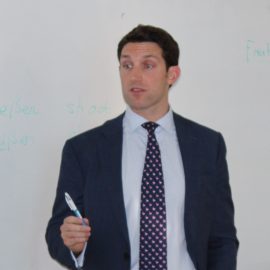School-based training is on-the-job training allowing graduates to qualify as a teacher while they work. We work within a partnership of outstanding local schools and the University of Hertfordshire to deliver our graduate teacher training.
There are two strands to school-based training: one is unsalaried, and like a PGCE course attracts both a tuition fee and bursaries; the other strand is a salaried route.
School-based training (salaried) programme
Trainees are employed as unqualified teachers during their training year. They will also be registered students at the University of Hertfordshire. The fees for the programme through University of Hertfordshire are paid by the training school.
Successful trainees will be recommended to the National College of Teaching and Leadership for Qualified Teacher Status and will be accredited with 30 Masters level credits (Level 7).
School-based training (unsalaried) programme
Trainees are school based at, but not employed by, their training school. They will also be registered students at the University of Hertfordshire. The University of Hertfordshire fees for PGCE courses is £9250. Trainees may be eligible for student finance from the Student Loan Company and may be eligible additionally for ITT bursaries.
Successful trainees will be awarded an internationally recognised secondary PGCE (i.e. Qualified Teacher Status and 60 Masters level credits).
School-based training awards Qualified Teacher Status, but not PGCE (Post Graduate Certificate in Education).
Entry to school-based training at Queen Elizabeth’s is highly competitive and places are allocated after interview in the Autumn Term to start the following September. Applications can be made to the school at any time during the academic year although most applications are submitted during the Autumn Term. Those short listed are usually invited for interview between October and early December.
At Queen Elizabeth’s we are particularly interested in receiving applications from those with an academic background in the following subject areas:
• English
• Geography
• History
• Languages (applicants should be able to teach any two of French, German and Latin)
• Mathematics
• Physical Education
• Science
Requirements of candidates
1. A good honours degree (2:1 or higher) in the subject to be taught
2. A GCSE grade C/5 or above in English and mathematics
3. At least three years’ relevant career experience (for the salaried route)
4. A firm commitment to a career in the teaching profession
5. A capacity for hard work
6. Strong organisational skills
The application process
1. Potential school-based training teachers should email a completed application form to recruitment@qebarnet.co.uk. The application form for teaching posts is available to download from the staff vacancies page of our website. All applications will be acknowledged.
2. Queen Elizabeth’s should be informed of how many school-based training places it has been allocated in mid-October.
3. Short-listed candidates will be invited to attend an interview between October and early December. The selection process will involve a number of tasks and all candidates will be required to prepare and deliver a lesson.
4. Once a place is secured on the salaried programme, the candidate will be employed as an unqualified teacher at Queen Elizabeth’s, initially on a fixed-term one-year contract.
Frequently Asked Questions
How long does the training programme take?
The training programme lasts for one full school year with participants working full time.
What qualifications do you need?
You need qualifications at least equivalent to a UK bachelor’s degree (graded at 2:1 or higher) and GCSE grade C/5 or above in mathematics and English.
What support is available?
All school-based training teachers at Queen Elizabeth’s are employed as additional members of the teaching staff, so it is not necessary to take on a heavy teaching load immediately. Each trainee is assigned a Subject Mentor within his/her department and a Professional Mentor. There is a full programme of induction and professional development during the training year.

